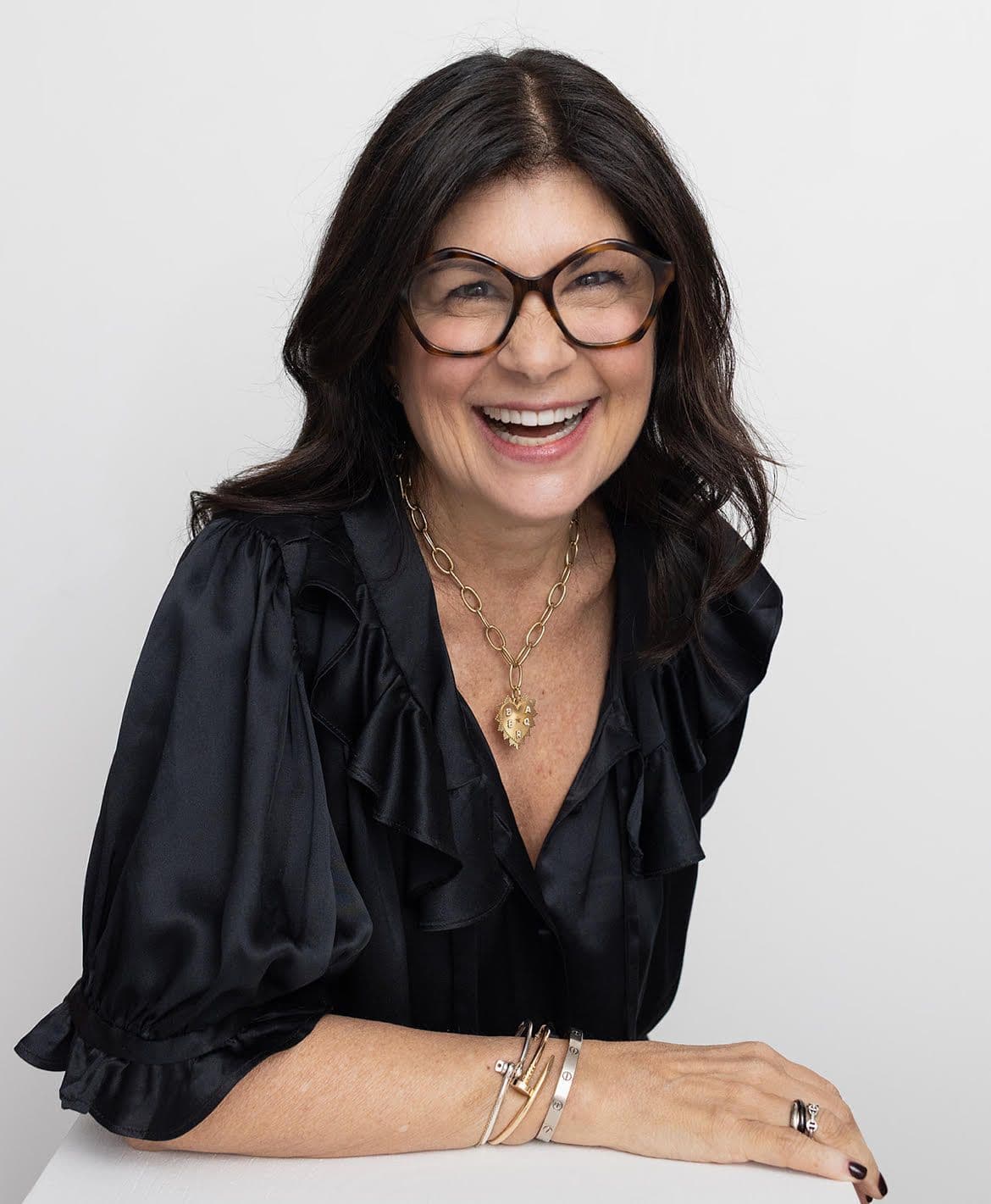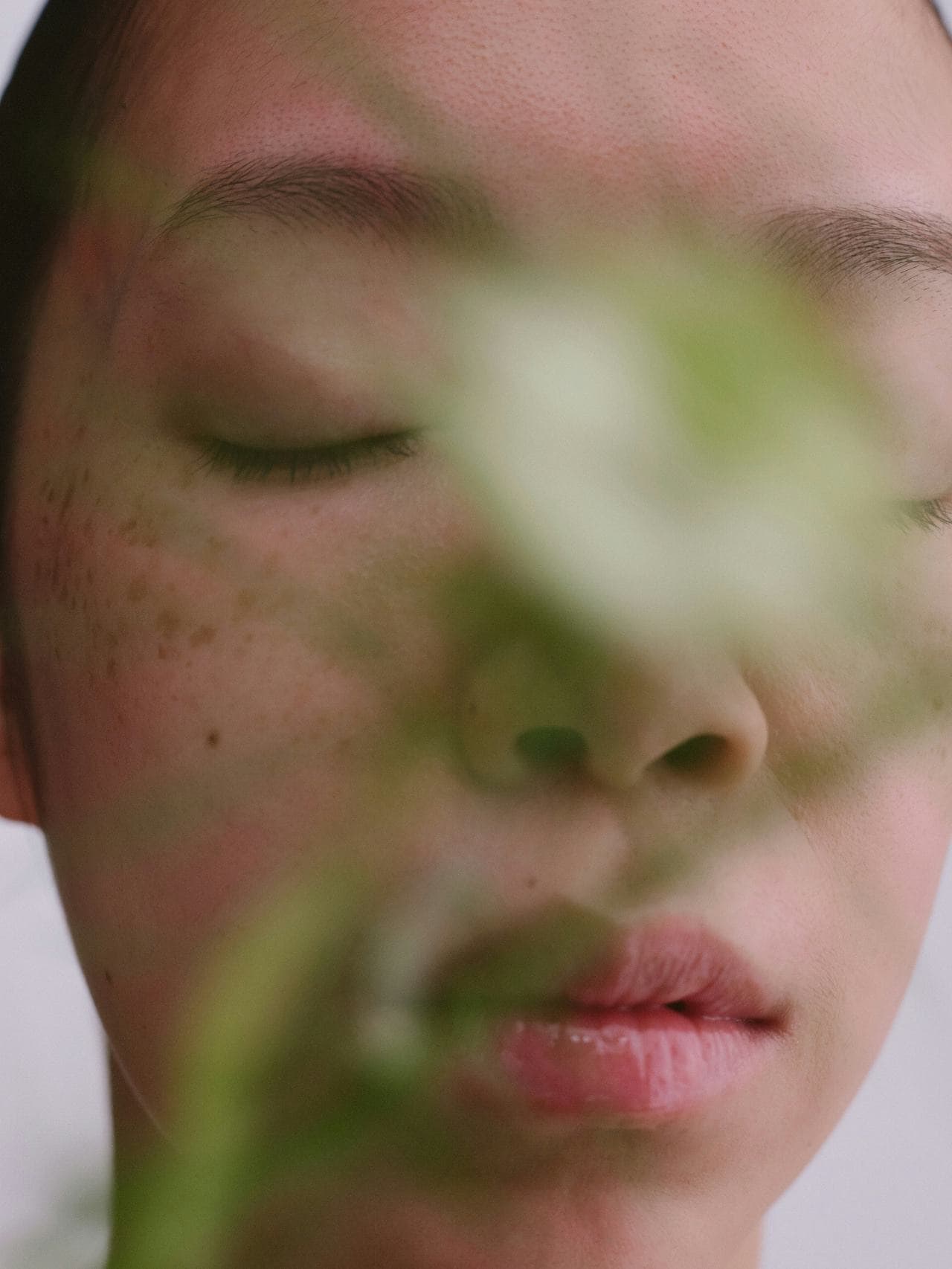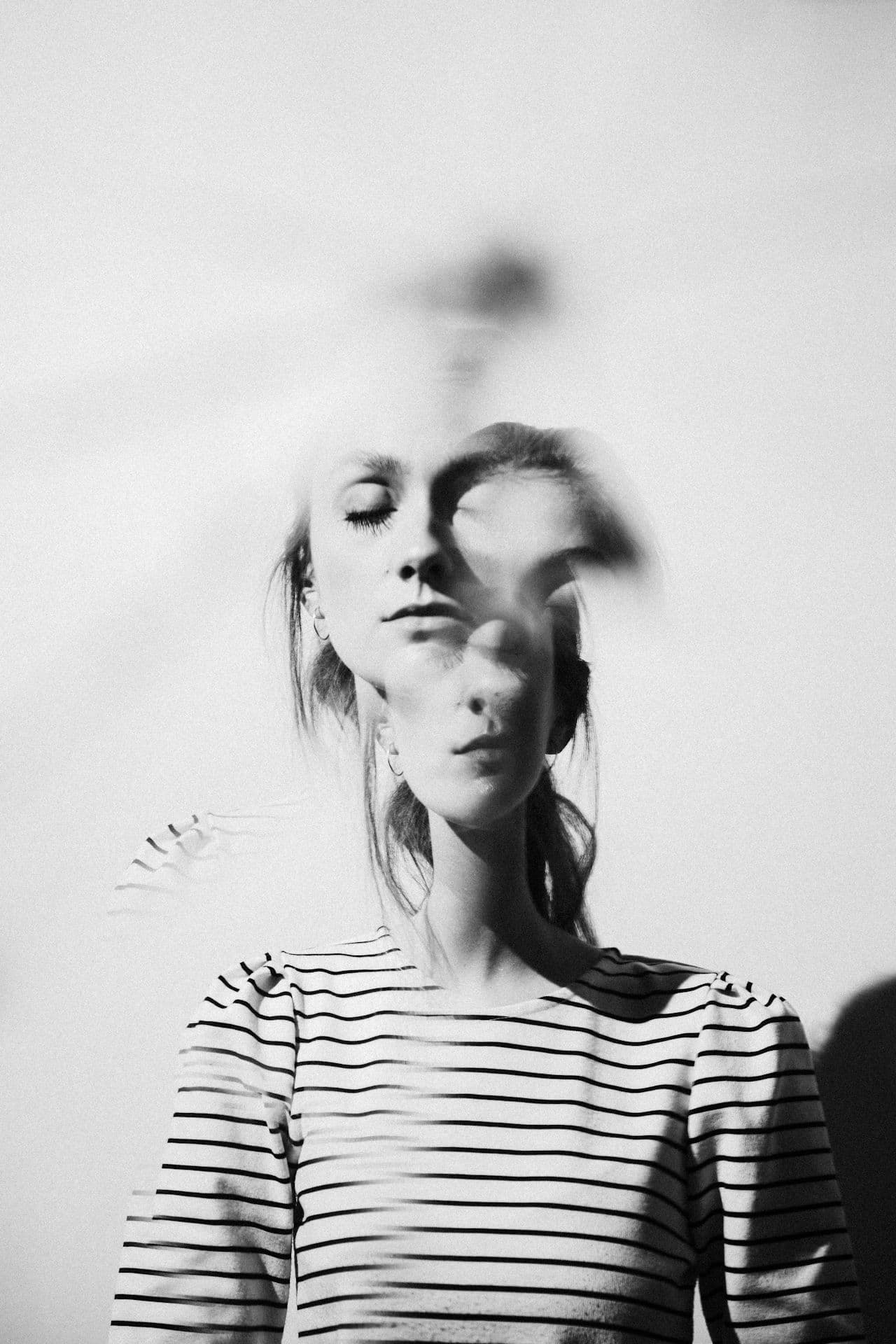We associate grief with death, but it doesn’t have those boundaries. Any change (unexpected and transformative; slow and accumulative) can be something to mourn. The landscape of grief encompasses lost identities, lost routines, lost plans, and the aching shift in how we relate to ourselves, to our bodies, and to each other; and it can be a huge feeling navigating a cancer diagnosis.
In this interview, we speak with Barri Leiner Grant, the Founder and Chief Grief Officer at The Memory Circle, a grieving community and practice. Barri is a full-time Certified Grief Coach. She offers practical advice for mourning during your diagnosis, and after your treatment. She offers a very clear framework for figuring out how to best support a loved one who has cancer. And, she recommends a very gorgeous journal for writing it all down.
Q:
What distinguishes grief around someone’s illness?
A:
Grieving an illness is a lot like grief from death. But we create this hierarchy in our minds, right? We ask: Do I have permission to grieve? We’re either seeking permission or comparing. I always say there's no grief Olympics. Your grief is the one that needs tending to.
My friend and grief therapist Gina Moffa calls it the Grief Fall. It’s that moment of the before and after: after we get that news, or we get that phone call, and our lives are forever changed. The trajectory has been changed at this moment, and that acceptance is hard to come by, because we are trying to get back to who we were before.
And the way the world shows up for us is that they try to fix something that is not fixable. I always say: Grief is not a problem to be solved.
Q:
What’s your wisdom about mourning a future—in either death or non-death loss—that doesn’t exist anymore?
A:
When we're in that acute stage, the early days, it's hard to imagine a new future. And then as you move along, it’s like, ‘Well, I'm still me,’ or ‘I’ve had some kind of post traumatic growth that I never imagined in a million years,’ or ‘I’m living more presently.’ And you could still be pissed. You could still wish for the before or that you didn't have a physical reminder. It's okay to be disappointed and to sit with that hurt.
Or, ‘I'm grieving dreams that I don't think I'll realize now. I'm grateful and gutted.’ There's no way around that either.
Grief isn't always about what happens. Sometimes it's about what won't happen, right? We grieve the body that could run or carry or climb, that the life that once felt like it was within reach. This is real grief and allowed grief. It doesn't have to be rushed or reshaped. You don't have to have gratitude every minute of every day.
I know there's good, juicy science about having a gratitude practice. And I sometimes think that it's too much to ask someone to be grateful, in the throes of a diagnosis or even the aftermath.
I like a delights practice. I feel like if gratitude and joy had a baby, it would be delight. And you just find small things right, the next small, the next small joy.
Q:
You recommend noticing and savoring these delights by writing them down. Is there a particular journal that you like?
A:
I am devoted to a very expensive habit. It’s a journal by Louise Carmen; she's out of Paris. You get to pick it all: you pick the leather, you pick a little charm that goes on it. It might be a beautiful thing to treat yourself to.
The shipping is no joke that you have to have it shipped overseas, but it's definitely a forever thing. Mine is a grass green. My size is the road book. It’s a leather exterior, and then the little notebooks that go inside, you can [get] them from Muji or anywhere.
I think there's something really beautiful about the idea that you can have these talisman charms. I have an anchor on the front of mine. You can put a quote on it. You can engrave it.
Q:
What’s your wisdom for grief around someone’s body? For thinking of it more innocently? Or for a body without scars? Or a body that seemed more capable and was more healthy?
A:
The grief for a body that's changed or changing is a grief for what was and what was once possible. It reminds us that life is uncertain and that we have less control. Even giving yourself permission to see this as grief legitimizes your pain. It isn't vanity, it isn't a weakness: it’s loss. I think so many people carry silent grief for their bodies in so many ways. It doesn't mean we're broken, but we can long [for the bodies we had before].
Q:
It’s also a site where other people, misguided maybe, often comment.
A:
Let’s say you say to someone, ‘I got a surgery.’ And they say, ‘Oh, scars are so badass.’ It’s like: ‘Let me decide. Maybe I wasn’t looking to be a badass! I wanted my neck and my chin as they were, thank you very much. And I also am grateful.’ You're allowed to be both. That's the other thing: we’re allowed to carry both. So you can be grateful that you are in remission and that you're well, and that you were able to have this surgery so—and also be pissed and longing for the before and haunted because it is a physical reminder.
Visiting the scar can be haunting, comforting, but you get to name what that is. And I feel like that will change over time, as you encounter it.
It’s so huge: the body grief thing. I think body grief is loss of identity. I often use writing prompts, like: What would it feel like to thank your body, even though it's not how you imagined? What would it feel like? Do a love letter to the before body, or lighting a candle for the parts that you miss.
Ritual helps make what feels invisible visible. We need to craft a ritual around these things. For non-death loss, we barely have rituals.
There's no grief Olympics. Your grief is the one that needs tending to... I always say: Grief is not a problem to be solved.

Q:
How do you guide people who want to figure out how to support someone who is sick?
A:
People are often so afraid of not doing the right thing that they don't do anything at all. So number one, show up and also offer specific and very practical help. Say: I can take you to treatment. I can walk the dog. I'm dropping off dinner on Tuesday.
Going back to delights: like you can make a playlist, drop off a handwritten card, send a ridiculous meme, create a flower arrangement from your yard.
I always say ‘the cook cooks,’ because you have to show up as your truest self. You do not want me to cook for you. I'm the one who can sit with you in the muck and says, ‘This sucks.’ Consistency is my love language. I just keep, keep showing up.
Don't be afraid to just show up as that self, right? My sister used to say I had boxing gloves on; she called me the boxer, because I was always ready to advocate. Or I’m the organizer or I'm the person who can endlessly be on the phone, or, I’m the person with the practical skill. I’m the deep listener. I’m the comforter. There's the paperwork pro, the note taker. They all exist in your life, and they exist in us too. You just have to show up as you're the one.
[At a mourning event for my friend] this woman walked through the door and she had on this fantastic black dress and heels and a red lip and perfectly blonde hair. And people were horrified. The room started buzzing. And I was like: ‘That's the party girl that reminds you that there's life after loss.’ We need to know that there’s life after loss.
Q:
Why don’t we have grief skills? It seems like we—Americans maybe— are in a position where we’re plunged into grief and need to catch up quickly.
A:
In the states, we have at best three days of bereavement-leave allotted, at most companies. I don't know what you can do in three days that would even touch on any kind of grief-tending, which is what I call that self compassion and time that is needed to look introspectively.
We are a death-denying society. We just don’t have the kind of rituals and community to gather around our grief. Before we have experienced our own personal loss of any kind, death and non-death loss, we can't fathom what it feels like, what it looks like. Grief is this 360-degree emotional, spiritual and normal life event.
Our mistake is that it will make other people sad and uncomfortable to talk about it, and so we have likely avoided anything that makes us feel that way. The way that we reckon with that in, generally, in private. We isolate. There's loneliness around it. It is something that is shrouded in silence and sometimes guilt and shame—in a society that's telling us to get over it, to get back to work.
Q:
What’s your advice to caregivers, who are dealing with their own grief about their loved one’s illness?
A:
You have to make space for your own grief too, as a caretaker. It doesn't mean that you have to do it together with the person that you're caring for. You can do it by finding a support group, talking to a therapist, journaling, taking breaks, allowing yourself to say: this is hard for me too.
You need to feel permission that it's happening to both of you. It’s changing the trajectory of both lives. It can actually create a more open and loving conversation. You don't have to compare or say, mine is worse, but just that it’s happening to both of you, in different ways. Caretaking doesn't always look like strength.
I would want my caretaker to be cared for. I would want to have those deep conversations. There's no one right way. There's your way. That is hard. That's the good news, and the bad news is that you have to decide what feels good for you.
Q:
Are there any books that you've read that you really like to recommend, with an eye towards what processing that grief might be like?
A:
Lisa Keefauver’s Grief is a Sneaky Bitch. She went through treatment as well. This is a great book to share. Her podcast is amazing. I really like her book because it's a little bit irreverent. It’s an uncensored guide to navigating loss.
Steve Leder’s The Beauty of What Remains: How Our Greatest Fear Becomes Our Greatest Gift. It’s a beautiful book. It’s deathy. I think what I loved about it is that he talks about an ethical will. The book explores how when we have an illness or diagnosis, it rearranges the way that we want to live the rest of our lives.
Alua Arthur’s Briefly Perfectly Human: Making an Authentic Life by Getting Real About the End. What's so transformative about her book is that she talks about making an authentic life by getting real about end of life. It’s a reckoning book.
Elena Brower’s Softening Time: Collected Poems, this is one that I often give in the early stages of grief.
Kate Bowler’s Everything Happens for a Reason.
Pixie Lighthorse’s The Wound Makes the Medicine: Elemental Remediations for Transforming Heartache. She has all these prayers of honoring voice.
Andrea Gibson: all her books are extraordinary.
I always like something that you keep by the bedside that's sort of like a daily dose of inspiration. Mark Nepo’s The Book of Awakening: Having the Life You Want by Being Present to the Life You Have. It's [organized by] 360 days. It’s these inspiring daily reads and prompts, and it's about having the life you want by being present in the life you have.
Gina Moffa’s Moving On Doesn't Mean Letting Go. She’s honoring all the different kinds of losses and the platitude trap, there's lots in here for non death loss. And I just love her way of talking about language.











